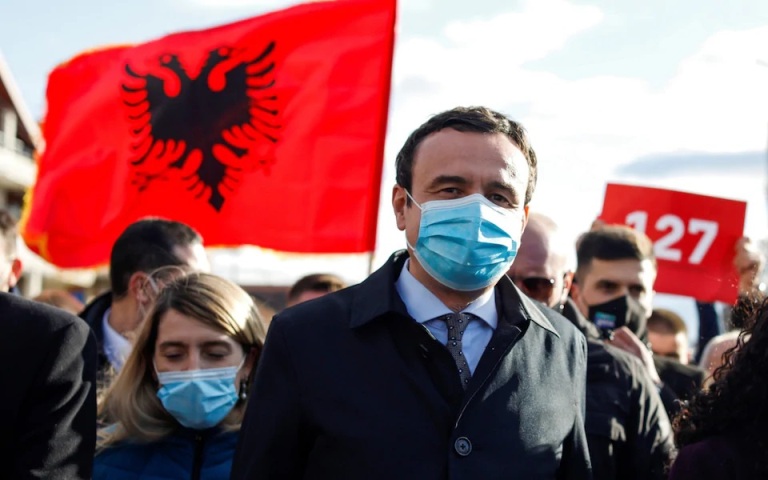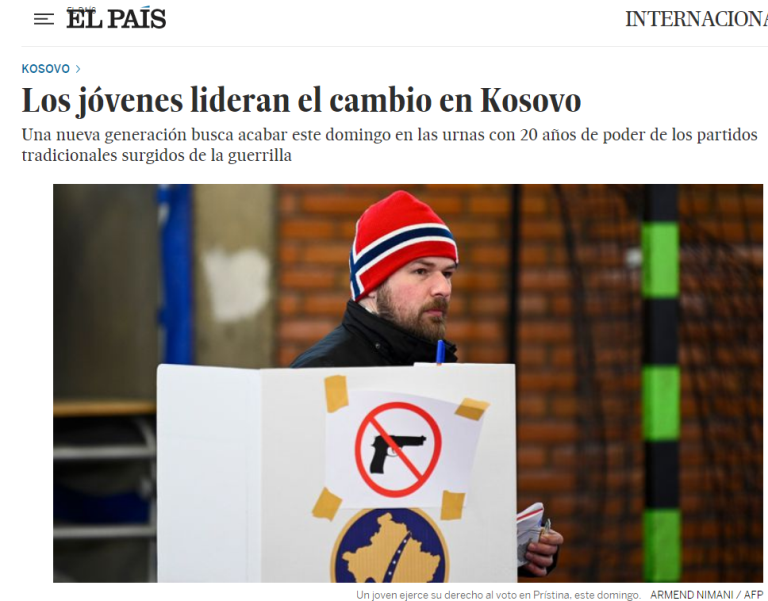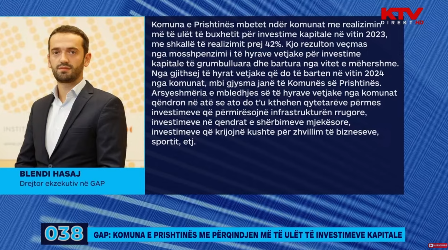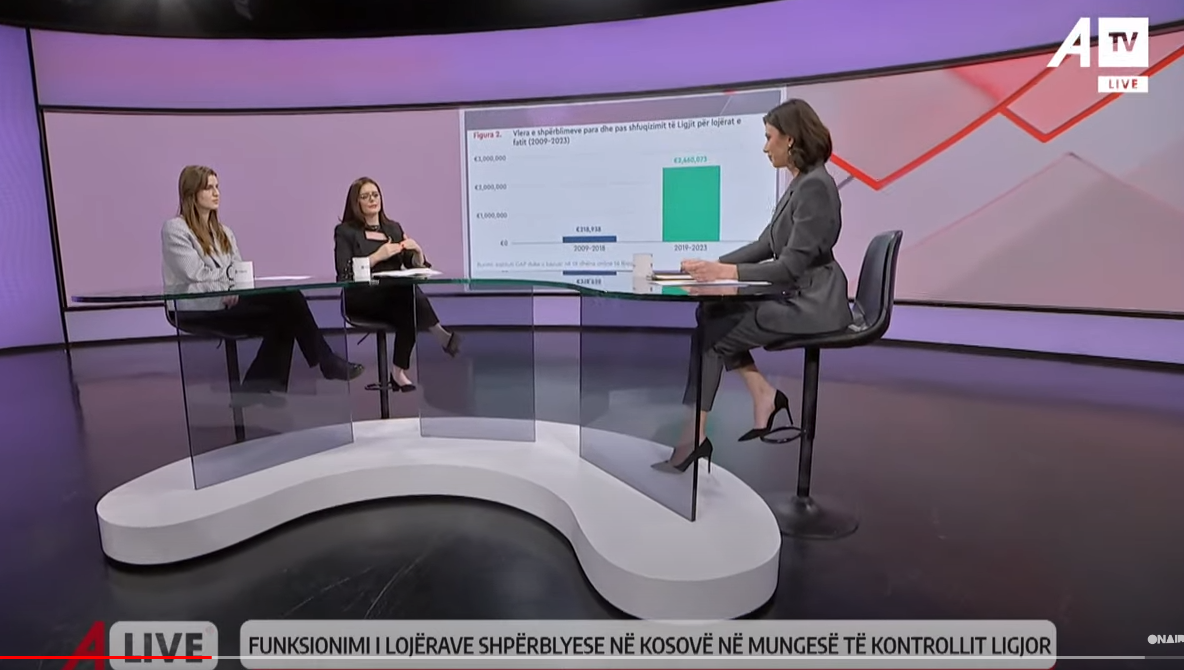GAP Institute's response to Kosovo Prime Minister's announcement of public sector wage increases
01/06/2017
The GAP Institute opposes an increase of salaries in the public sector. A request by Prime Minister Mustafa to the Ministry of Finance to look at the possibility of increasing salaries for civil servants, education and health workers, using the opportunity of the 2017 budget review, is in contradiction with the government programs and commitments of the Government of Kosovo given in the National Plan for Economic Reform 2017.
In order to avoid a uniform increase in salaries, as it happened in 2011 and 2014, in 2015, the Government of Kosovo has amended and supplemented the Law on Public Financial Management and Accountability, which envisages that starting from 2018 an increase in public sector salaries should reflect the overall economic growth. Therefore, the government's announcement for salary increases starting from the second half of 2017 is a wrong step which is pushed by pressure from trade unions in the public sector and the fact that 2017 is an election year. Compared to the budget review for 2016, the wages and salaries category in the planned budget for 2017 has increased by 4.2%. This increase is in accordance with a financial rule, which will enter into force next year, however further increase of salaries will exceed the annual nominal Gross Domestic Product (GDP) growth rate.
In the civil service, an increase in salaries is associated with an assessment of individual performance of each civil servant and carer promotion. Increasing salaries as a group for all civil servants is also a discouragement for those civil servants who have shown good performance at work and consequently should receive a salary increase and promotion in their position or career. Such growth is also against Government efforts to raise and stabilize salaries through the Draft Law on Salaries in the Public Sector.
In addition, in the Kosovo Program for Economic Reform in 2016 and 2017, the Government of Kosovo has stated that it has managed to introduce a rule in the Law on Public Financial Management and Accountability which links the increase of salaries with an increase of nominal Gross Domestic Product (GDP). In this document, which was produced in response to a request by the European Commission for all candidate countries aiming to join the European Union, the Kosovo Government recognizes the mistake of increasing salaries by 25% in 2014, a decision which has created a huge gap between salaries in the public sector and those in the private sector. In the last quarter of 2016, the average salary in the public sector went up to 554 Euros, while in the private sector it remained at 416 Euros.
The following chart, taken from the Kosovo Economy Reform Program 2017, illustrates this gap between salaries in the public and private sectors.
Graph 1: Average salaries in the public sector versus average salaries in the private sector (2016)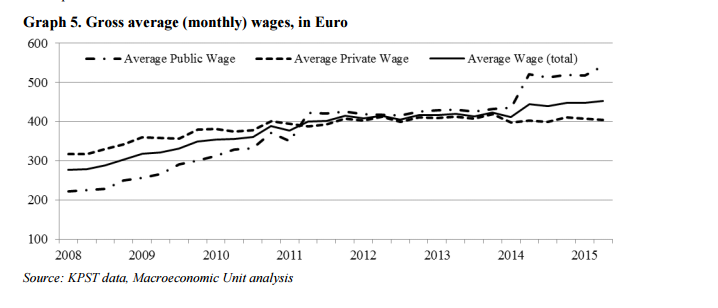
Increase of salaries in the public sector occurred steadily since 2008. Since 2014, the category of actual spending on wages and salaries is the category with the largest expenditures, exceeding that of capital investments.
Graph 2: Salary growth trend 2009-2016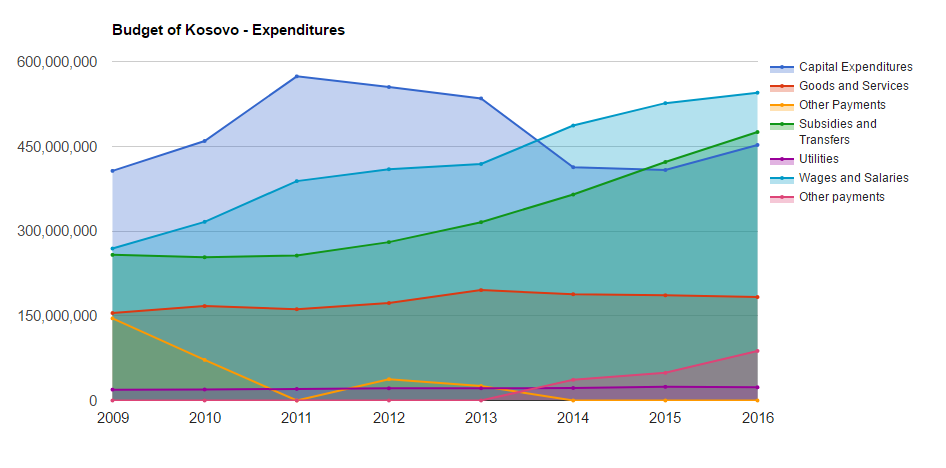
The GAP Institute recommends that the Government of Kosovo improve salary increase planning in the public sector and not increase salaries above the annual economic growth rate.






